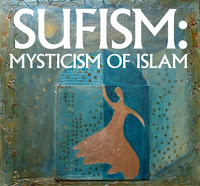1-Sunni
Sunni Islam contains the majority of all Muslims. Sunni Muslims include 84%–90% of all Muslims. It is broken into four schools of thought (known as Mazaheb) which interpret specific pieces of Islam, such as which foods are permissible (halal) differently. They are named after their founders Maliki, Shafi'I, Hanafi, and Hanbali. They are sometimes mistakenly understood as different sects, but they are not.
2-Shi'a Islamic Denomination
The Shi'a means "the party of Ali,". They believe that succession should be hereditary, staying within the Prophet's family. They believe that Ali ibn Abi Talib, as the closest living male relative of Muhammad was his rightful successor, and they called him the first Imam (leader), rejecting the legitimacy of the previous Muslim caliphs. Three main subgroups of Shi`ites are Twelvers (Ithna-`Asharis), Seveners (Isma`ilis), and Fivers (Zaydis).
3-Sufism
4-Wahabi
5-Baha’is and Ahmadiyyas
Both are
19th-century offshoots of Shi`ite and Sunni Islam, respectively. Bahai’s
consider themselves the newest of the major world’s religions but recognize
that historically they originated from Shi`ite Islam in the same way that
Christianity originated from Judaism. Ahmadiyyas do regard themselves as
Muslims. Most other Muslims, however, deny that either group is a legitimate
form of Islam and regard members of both groups as heretics —
people who have corrupted and abandoned Islamic belief and practice.
* According to most sources, approximately 85% of the world's Muslims are Sunni, and approximately 15% are Shi'a; however, there is a small minority who are members of other Islamic sects.
According to most sources, approximately 85% of the world's Muslims are Sunni, and approximately 15% are Shi'a; however, there is a small minority who are members of other Islamic sects.
* According to most sources, approximately 85% of the world's Muslims are Sunni, and approximately 15% are Shi'a; however, there is a small minority who are members of other Islamic sects.
According to most sources, approximately 85% of the world's Muslims are Sunni, and approximately 15% are Shi'a; however, there is a small minority who are members of other Islamic sects.














